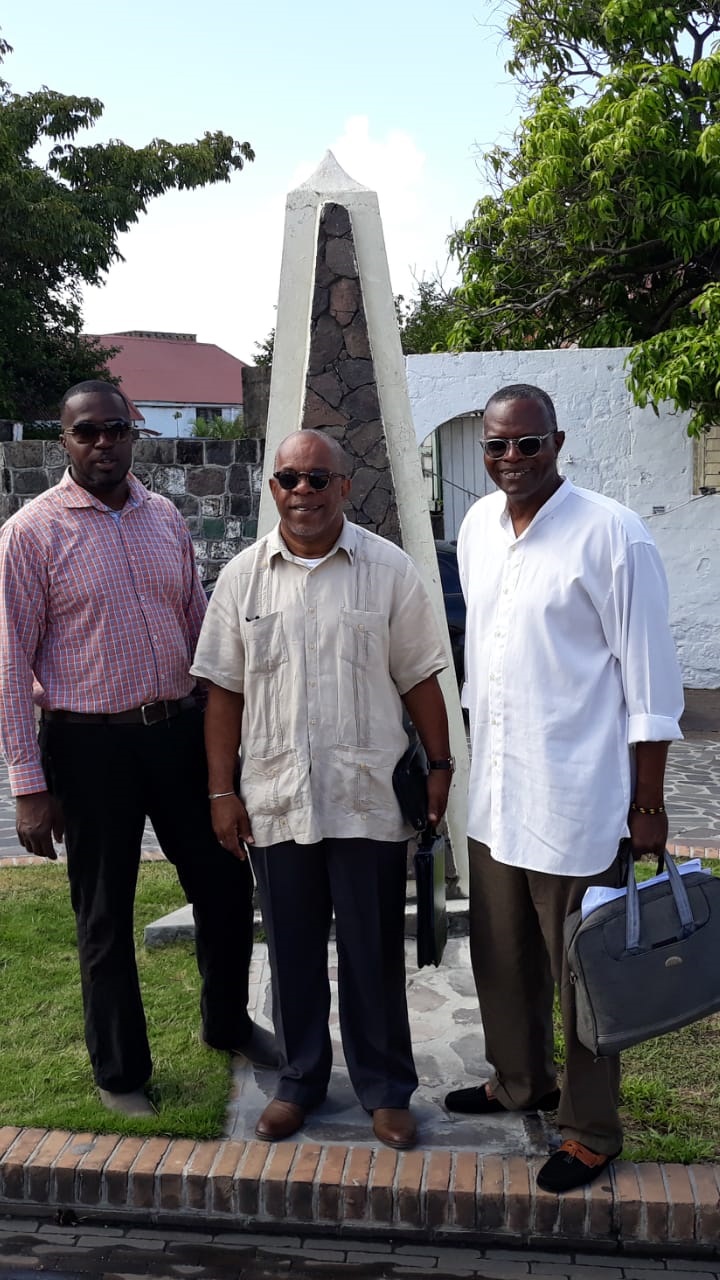
ORANJESTAD – Statian politicians spearheaded by Island Council member Clyde van Putten are heading to court in an attempt to regain control of their island. There is not even a remote chance that the Netherlands will give in to their demand to relieve administrator Mike Franco of his duties by 4 p.m. on Monday afternoon. Once that deadline is gone, Van Putten c.s. will file an injunction on Wednesday at the Court in First Instance in a further attempt to suspend the Temporary Law Task Negligence Sint Eustatius (Tijdelijke Wet Taakverwaarlozing Sint Eustatius) and to undo some of its consequences.
Charles Rutte is the attorney who handles the dispute for the Netherlands. He used the term “some of its consequences” in a reaction to the demands. But Van Putten c.s. want much more than that. They demand that the Netherlands halts three pieces of legislation: the WolBES (the law that regulates the status of Bonaire, Statia and Saba as Dutch public entities), the FinBES (the law that regulates financial supervision) and the earlier mentioned temporary law.
Furthermore the Statian politicians demands that the state removes Kingdom Commissioner Mike Franco and his second in command Mervyn Stegers not only from their position but also from the island.
The next demand is to let the democratically elected Island Council and the Executive Council do their work without further interference. Lastly, the politicians want a public apology from the Netherlands.
Van Putten c.s’ threat with an injunction is a strategic move. The Statians have already filed a regular lawsuit against the Dutch interference in their political affairs but it could take some time before that matter plays out in court. The injunction aims to put everything on hold and – basically – give control over the island back to the locals.
It will still take a couple of weeks before the court will hear arguments in the injunction, but once that happens the fireworks will begin – or maybe not. The judge could for instance rule that he is not competent to handle these matters in summary proceedings. Another option is that the question is too complicated for a ruling in such a court procedure.
But there is also a chance – a good one, according to some observers – that the court will side with the plaintiffs and put everything on hold. That would create a rather unique constitutional situation – a tough one to handle for the Netherlands.
The arguments Van Putten c.s. have put on the table make a lot of sense at first glance. They base their demand on an article in the United Nations charter that speaks of a people’s full right to self-government.
They also argue based on a Supreme Court ruling from 1999 that “a treaty, as the highest legal instrument cannot infringe upon an obligation or a right established in the United Nations charter.”
National legislation and the Dutch Constitution cannot infringe upon those rights either, the Statian politicians reason.
“We are convinced that the state will not be able to convince an independent and unbiased judge that national legislation is allowed to infringe upon rights or obligations established in the United Nations charter,” Van Putten c.s. write in their demand to the Netherlands.








